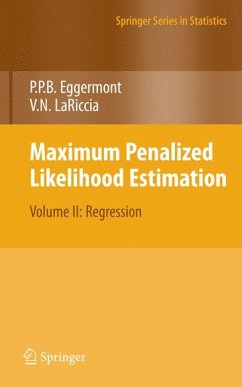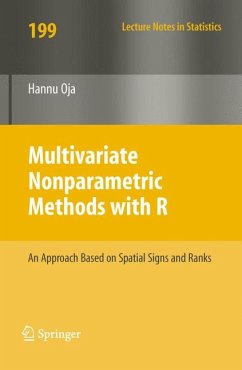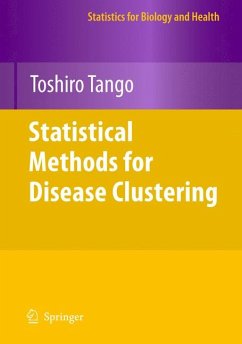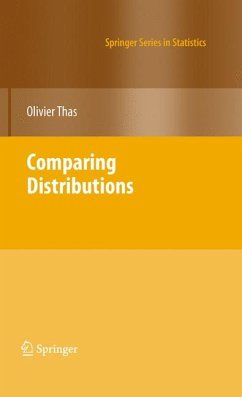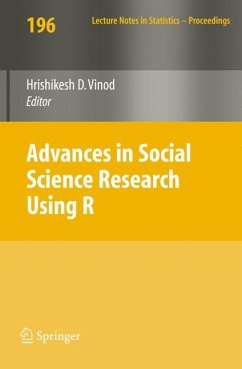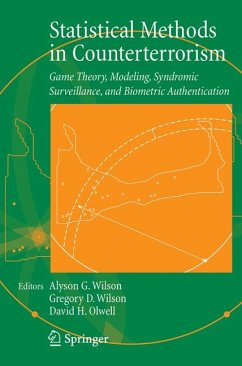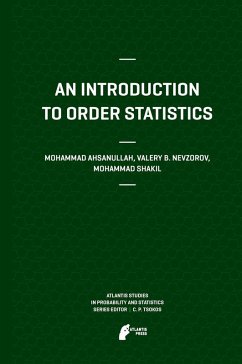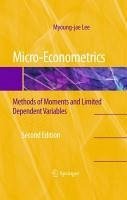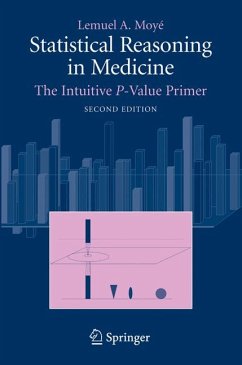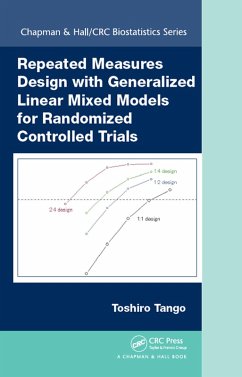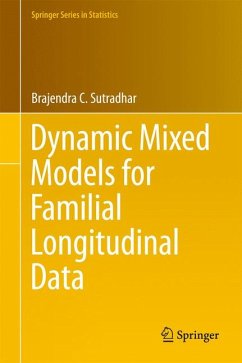
Dynamic Mixed Models for Familial Longitudinal Data (eBook, PDF)
Versandkostenfrei!
Sofort per Download lieferbar
72,95 €
inkl. MwSt.
Weitere Ausgaben:

PAYBACK Punkte
36 °P sammeln!
This book provides a theoretical foundation for the analysis of discrete data such as count and binary data in the longitudinal setup. Unlike the existing books, this book uses a class of auto-correlation structures to model the longitudinal correlations for the repeated discrete data that accommodates all possible Gaussian type auto-correlation models as special cases including the equi-correlation models. This new dynamic modelling approach is utilized to develop theoretically sound inference techniques such as the generalized quasi-likelihood (GQL) technique for consistent and efficient est...
This book provides a theoretical foundation for the analysis of discrete data such as count and binary data in the longitudinal setup. Unlike the existing books, this book uses a class of auto-correlation structures to model the longitudinal correlations for the repeated discrete data that accommodates all possible Gaussian type auto-correlation models as special cases including the equi-correlation models. This new dynamic modelling approach is utilized to develop theoretically sound inference techniques such as the generalized quasi-likelihood (GQL) technique for consistent and efficient estimation of the underlying regression effects involved in the model, whereas the existing 'working' correlations based GEE (generalized estimating equations) approach has serious theoretical limitations both for consistent and efficient estimation, and the existing random effects based correlations approach is not suitable to model the longitudinal correlations. The book has exploited the random effects carefully only to model the correlations of the familial data. Subsequently, this book has modelled the correlations of the longitudinal data collected from the members of a large number of independent families by using the class of auto-correlation structures conditional on the random effects. The book also provides models and inferences for discrete longitudinal data in the adaptive clinical trial set up. The book is mathematically rigorous and provides details for the development of estimation approaches under selected familial and longitudinal models. Further, while the book provides special cares for mathematics behind the correlation models, it also presents the illustrations of the statistical analysis of various real life data. This book will be of interest to the researchers including graduate students in biostatistics and econometrics, among other applied statistics research areas. Brajendra Sutradhar is a University ResearchProfessor at Memorial University in St. John's, Canada. He is an elected member of the International Statistical Institute and a fellow of the American Statistical Association. He has published about 110 papers in statistics journals in the area of multivariate analysis, time series analysis including forecasting, sampling, survival analysis for correlated failure times, robust inferences in generalized linear mixed models with outliers, and generalized linear longitudinal mixed models with bio-statistical and econometric applications. He has served as an associate editor for six years for Canadian Journal of Statistics and for four years for the Journal of Environmental and Ecological Statistics. He has served for 3 years as a member of the advisory committee on statistical methods in Statistics Canada. Professor Sutradhar was awarded 2007 distinguished service award of Statistics Society of Canada for his many years of services to the society including his special services for society's annual meetings.
Dieser Download kann aus rechtlichen Gründen nur mit Rechnungsadresse in A, B, BG, CY, CZ, D, DK, EW, E, FIN, F, GR, HR, H, IRL, I, LT, L, LR, M, NL, PL, P, R, S, SLO, SK ausgeliefert werden.




